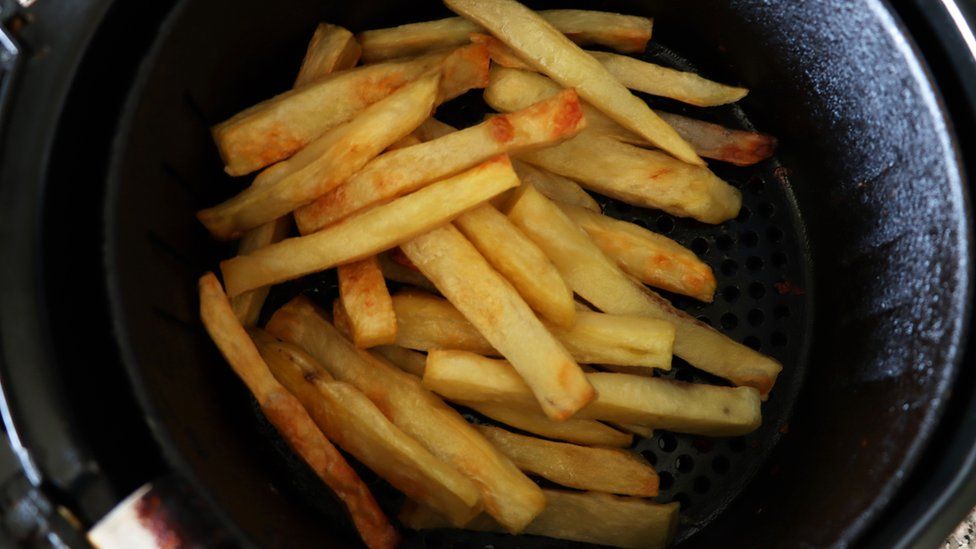ARTICLE AD BOX
 Image source, Getty Images
Image source, Getty Images
By Noor Nanji
Business reporter, BBC News
People are stocking up on blankets and air fryers as they try to keep their energy bills down this winter, according to a new report.
Other energy-efficient appliances, such as air dryers, and warm clothing have also been selling well, the British Retail Consortium (BRC) said.
But despite this, overall retail sales volumes continued to fall in September, the BRC said.
It said people have been avoiding buying items such as TVs and computers.
The report, from the BRC and consultancy KPMG, showed the value of retail sales grew by 2.2% last month, an increase from the 1% growth seen in August.
However, the slight rise in sales masks a much bigger fall in the volume of goods sold, once inflation is accounted for, the BRC said.
Inflation - the rate at which prices are rising - is currently near a 40-year high, at 9.9%.
"While UK retail sales grew in September, this represented another month of falling sales volumes given high levels of inflation," said Helen Dickinson, chief executive of the British Retail Consortium.
"As consumer confidence continued to fall, people shopped cautiously, avoiding large ticket items such as new computers, TVs and furniture," she said.
"Many households are also preparing for higher energy costs this winter, with blankets, warm clothing, and energy-efficient appliances, such as air dryers and air fryers, all selling well."
Energy bills rose for millions of households on 1 October, although the increase was cushioned by a government cap on the cost per unit.
A typical household annual bill has gone up from £1,971 to £2,500 and there are some further cost-of-living payments to help soften the impact.
But prices are still twice as high as last winter.
Elsewhere, the BRC report shows that food sales rose by 4.6% over the three months to September, compared with the same period in 2021.
Non-food sales slipped by 0.4% over the quarter but rose over the month of September, helped by clothing sales.
"Once again, clothing and footwear came to the rescue of the High Street, and back-to-school purchasing was a driver in retail growth figures, with sales of children's shoes up over 15%," said Paul Martin, UK head of retail at KPMG.
"Sales of household appliances and cooking accessories also moved into positive territory this month, as consumers look to purchase more energy efficient kitchen items in light of rising energy prices."
Ms Dickinson warned the winter ahead would be tough for retailers as well as consumers.
"Costs are increasing throughout retailers' supply chain, the pound remains weak, interest rates are rising, and a tight labour market is pushing up the cost of hiring," she said.
"All of this is making it harder for retailers to reduce prices and help struggling households."
Nights in
A separate report from Barclaycard further illustrated the pressures on households, as cost of living concerns bite.
The figures showed consumer card spending rose 1.8% year-on-year in September, the smallest uplift since February 2021.
Spending on essential items saw its weakest rise this year, with growth slowing on fuel and groceries.
However, Barclaycard said that categories such as takeaways and digital content benefited from the arrival of colder weather, which has prompted people to spend more time at home.
"Consumers are taking a savvy approach to budgeting as they reduce spending on discretionary items and seek more value in their weekly shop, which is having a knock-on effect on retail and hospitality sectors," said Esme Harwood, director at Barclaycard.
"However, Brits are also looking for ways to enjoy themselves at home while saving money, which has led to growth across "insperience" categories such as digital subscriptions and takeaways.
"It is likely to remain a challenging time for many other sectors as consumers focus on essential spending and businesses continue to navigate inflationary headwinds."

 2 years ago
38
2 years ago
38








 English (US) ·
English (US) ·